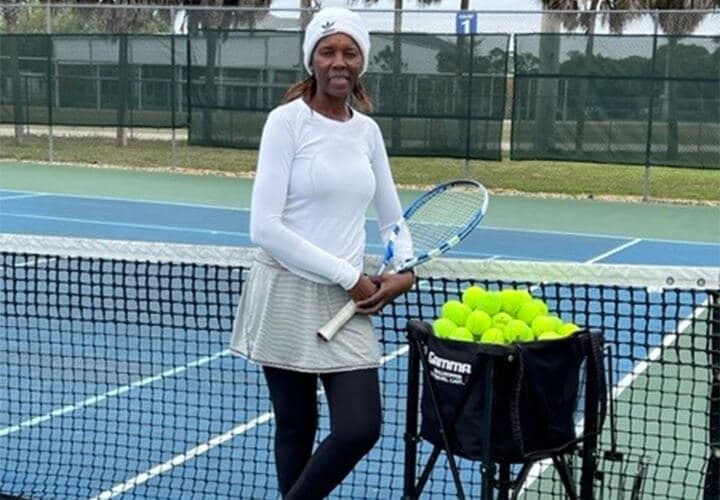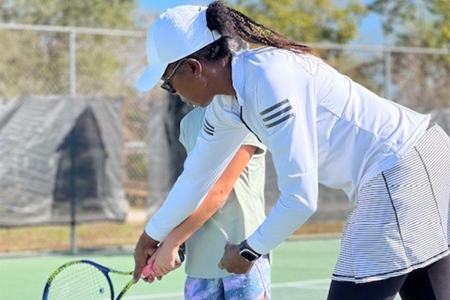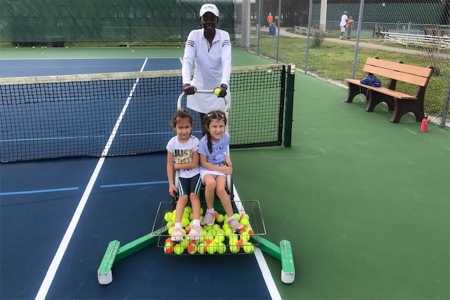In celebration of Women’s History Month, throughout March USTA Florida is celebrating all the women whose passion and presence continue to fuel the growth and success of tennis — at every level. We’re committed to supporting, elevating and attracting diverse women to all aspects of the tennis industry in Florida.
The Director of Tennis at Three Oaks Tennis Center in Fort Myers and a certified teaching pro with the Lee County Community Tennis Association, Sibongile “Sibo” Kangwa works tirelessly on behalf of the sport of tennis and has made a big impact in Southwest Florida. The Zambia, Africa native has been involved with recreational and competitive tennis for more than 20 years and has been named USTA Florida’s Volunteer of the Month (2016), was named High School Coach of the Year her first year coaching, and her family was recognized as USTA Florida’s Family of the Year in 2016.

Sibo Kangwa
When did you first pick up a racquet and how did you get your start in the sport?
Around 1998, after I met my husband Patrick who played tennis for the Zambia Davis Cup team. We met while I was competing for the Zambia National Volleyball Team at the Olympics-style All-African Games. He was competing in tennis.
What is your history in the sport before starting in your current position?
I started playing tennis seriously in 2002 then started volunteering at summer camps and at CTA tournaments before certifying to become a tennis pro. I have worked in the county parks (CTA) my entire career.
What is the most rewarding part of your job as the Director of Tennis at Three Oaks Tennis Center?
Meeting and connecting with the many wonderful members of our community that tennis brings together.
What is your ultimate ambition as a coach?
To foster the talent of the next generation of tennis, both as players and as people.
It’s known there aren’t many women in positions of sports leadership across the country – why does that need to change?
The absence of women in leadership roles sends the message to young girls that they are not good enough and cannot strive for higher positions in the world of sports. Women in leadership roles can provide positive role models and mentorship to young girls and show them they are just as qualified as men.
What do you think women bring to the tennis-teaching profession that makes them a valuable asset to tennis clubs/facilities?
We have learned as a society that diversity enhances learning, life and experiences. Diversity provides various point styles and teaching methods that lead to a better learning environment for all groups.
What do you think we as an industry can do to bring more women into those roles?
Organizations can actively seek out and encourage qualified women to apply for leadership positions in sports. We can also provide mentorship programs that help enhance leadership potential.
Why are women the key to tennis growth and how do we reach them?
There is an opportunity for more women to play tennis because they appear to be underrepresented in the sport. Many of the women I teach tell me they wish they would have started playing tennis when they were younger, but there were no programs in their communities that provided an opportunity for them to participate in and learn the sport. There should be more tennis programs for all ages in all communities. I am glad to see that the USTA is working hard to help CTAs in all states.
What advice would you give to other women who may be hesitant to take the leap to a higher-level position?
You will never know what your potential is unless you try. Confidence comes from taking risks and succeeding. More women in tennis leadership roles will make that the norm, not the exception.
For more inspiring features on women in Florida tennis, click here, and be sure to follow @ustaflorida on social media throughout the month of March.




